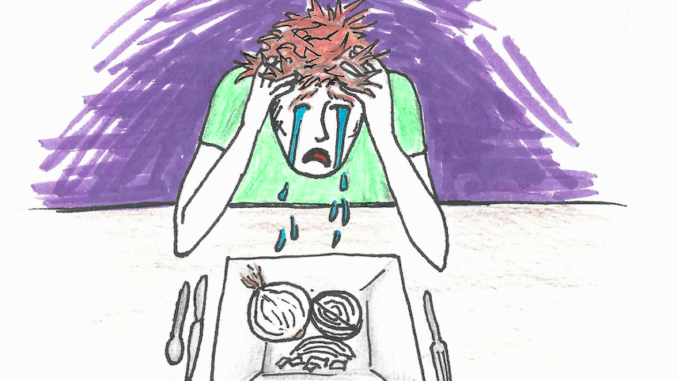
The issue of food waste at Lewis & Clark is a huge hindrance to the sustainability of our campus as a whole. However, while most students like to point the finger at Bon Appétit for the amount of waste produced, the truth is much of the accountability is on the students for not finishing the food on their plate.
Bon Appétit not only composts all organic waste but has diverted thousands of pounds of food from the compost to the community through Urban Gleaners, an organization which picks up and delivers organic food to schools and food-insecure communities in Portland.
Ryan Jensen, the General Manager of Bon Appétit, discussed where he sees future improvements in sustainability. He said that one of the most prevalent issues is the amount of food wasted on students plates.
“We will continue to struggle with post-consumer food waste until we have more effective messaging to our guests about the impact of taking more than you will eat — ‘all you care to eat’ should not be seen as a challenge,” Jensen said via email. “Guests complain about small portions from time to time on our non-self-serve stations, but this is one of the ways we can most dramatically lower what ends up on the dish carousel.”
While the food waste created by one person seems minuscule, this individual impact adds up. Students Engaged in Eco Defense (SEED) conducted a study last semester investigating how much food is wasted by students in one meal.
“We found that 76 pounds of food were wasted during dinner, which is equivalent to 61 meals,” SEED member Evelyn Hunsberger ’19 said via email. “Students were given the chance to record the reason for why they had extra food on their plates. 6.5 percent said it was because they were served too much, 5 percent said they ran out of time to eat, 32 percent said they served themselves too much and 55.5 percent said that it was because they didn’t like the food.”
One potential solution for this wasted food, proposed by both SEED and Bon Appétit, is getting tasting spoons at each of the serving stations, much like the Dovecote has for their selection of soups. While this solution would help prevent students from serving themselves food they do not like, it would potentially make the already overwhelming lines even more congested.
A much simpler solution to this problem seems obvious; only take what you are going to eat. If you want to try something new, get a small amount instead of heaping spoonfuls. The beauty of the buffet is that you can always go back for more. Be mindful with your portion size. That being said, let’s make our New Year’s resolution “clean plates for a greener campus.”
Subscribe to the Mossy Log Newsletter
Stay up to date with the goings-on at Lewis & Clark! Get the top stories or your favorite section delivered to your inbox whenever we release a new issue.

Leave a Reply